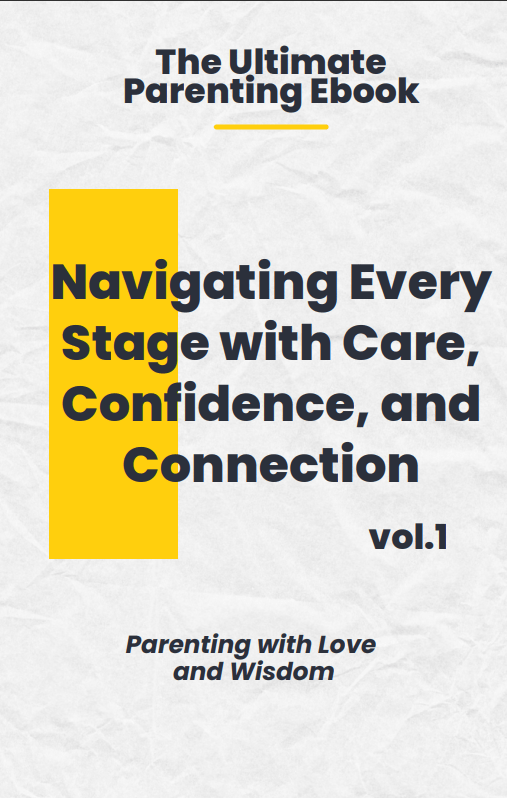Navigate the challenges of raising teenage daughters with our expert tips to prevent school dropout.

Raising teenage daughters in today’s world comes with its unique set of challenges, especially when it comes to ensuring their academic success and overall well-being. As parents, it’s crucial to recognize the significance of supporting our teenage daughters to prevent school dropout risks and navigate through the complexities they may face. From peer pressure to academic stress, teenage girls encounter various obstacles that can potentially lead to dropping out of school. In this guide, we’ll explore practical tips aimed at reducing dropout risks and fostering a supportive environment for our daughters to thrive academically and personally. Let’s delve into how we can effectively support our teenage daughters in their educational journey.
In This Blog
ToggleTip # 1: Establish Clear Communication Channels

A. Importance of Open and Honest Communication
- Creating Trust: Cultivating trust through open dialogue is paramount while raising teenage daughters. Regular conversations about school performance and social interactions offer insight into their experiences and challenges.
- Addressing Concerns: Encouraging daughters to express worries allows parents to provide timely support. For instance, if a daughter feels overwhelmed with schoolwork, collaborative strategies for managing time and stress can be developed.
B. Creating a Safe Space
- Non-Judgmental Environment: Establishing a non-judgmental atmosphere fosters openness and trust in raising teenage daughters. When discussing sensitive topics like peer pressure, parents can offer empathy instead of criticism.
- Promoting Open Dialogue: Encouraging daughters to share thoughts openly strengthens the parent-daughter bond. Scheduled family discussions or regular check-ins facilitate communication and deepen connections.
C. Encouraging Expression of Concerns
- Validation: Validating daughters’ feelings and experiences helps them feel understood and supported. Acknowledging frustrations with school projects encourages open expression.
- Problem-Solving Together: Collaborating on solutions empowers daughters to address issues actively. Brainstorming strategies for improving time management demonstrates a united effort in overcoming challenges.
Maintaining clear communication channels is vital, especially when dealing with difficult teenagers, in reducing teenage daughter dropout rates.
Tip # 2: Foster a Positive Home Environment

A. Creating a Supportive Atmosphere
- Family Bonding: Quality time spent together strengthens familial bonds and fosters a sense of belonging for raising teenage daughters, which can help reduce dropout rates. For instance, engaging in weekly family game nights or Sunday brunches creates opportunities for meaningful interactions and shared experiences.
- Emotional Support: Providing unwavering emotional support during challenging times reassures daughters of their family’s presence and guidance. When teenagers face academic or social difficulties, offering a listening ear and words of encouragement demonstrates unconditional support and helps prevent dropout.
B. Setting Clear Expectations
- Establishing Rules: Clearly outlining household rules and expectations instills structure and accountability in teenage daughters, reducing the likelihood of dropout. For example, setting guidelines for homework completion and household chores ensures clarity and promotes responsibility.
- Consistent Enforcement: Enforcing rules consistently reinforces boundaries and teaches daughters the importance of accountability, which can contribute to dropout prevention. Implementing consequences for breaking curfew or failing to meet academic expectations emphasizes adherence to rules.
C. Encouraging Healthy Habits
- Promoting Physical Wellness: Encouraging regular exercise and healthy eating habits supports teenage daughters’ physical well-being and positively impacts dropout rates. Activities like family hikes or cooking nutritious meals together promote an active lifestyle and reinforce self-care habits.
- Establishing Routines: Establishing consistent routines for sleep, study, and leisure activities fosters stability and reduces stress for teenage daughters, thereby lowering dropout risks. Creating a designated study space and implementing a nightly wind-down routine help daughters unwind and prepare for restful sleep, contributing to academic success and dropout prevention.
Amidst raising a teenage daughter, nurturing a positive home environment is paramount.
Tip # 3: Identify and Address Underlying Issues

A. Recognizing Signs of Stress, Anxiety, or Depression in Teenage Daughters
- Behavioral Changes: Being vigilant for signs of stress, anxiety, or depression in teenage daughters is crucial for preventing dropout. Changes like withdrawal or mood swings can indicate underlying issues that, if left unaddressed, may lead to disengagement from school.
- Academic Performance Dips: Monitoring academic performance and interest in activities can help detect potential problems early on. Recognizing when a once-enthusiastic daughter begins to struggle in school or loses interest in hobbies can prompt intervention to address underlying emotional distress.
B. Seeking Professional Help and Support if Needed
- Consulting Professionals: Seeking guidance from school counselors or mental health professionals is essential when dealing with a difficult teenager. Persistent signs of distress, such as prolonged sadness or anxiety, may require professional intervention to prevent dropout and promote overall well-being.
- Exploring Support Groups: Accessing support groups or online resources tailored to teenage mental health can provide valuable assistance. These platforms offer insights and support from parents who have navigated similar challenges, offering practical strategies to address difficulties and reduce dropout risks.
Tip # 4: Stay Involved in School Activities

A. Attending Parent-Teacher Meetings and School Events
- Importance of Engagement: Attending parent-teacher meetings and school events enables parents to actively participate in their teenage daughter’s academic journey, thereby reducing the risk of dropout. It allows parents to stay informed about their daughter’s progress, which can motivate her to remain engaged in school.
- Reducing Dropout Risks: Parents gain insights into their daughter’s academic performance and social interactions by attending these meetings and events, enabling them to address any issues early on. This proactive approach can prevent academic struggles from escalating and ultimately reduce the likelihood of dropout.
B. Building Relationships with Teachers and Counselors
- Enhanced Support System: Developing strong relationships with teachers and counselors establishes a supportive network for both parents and teenage daughters. This support system can play a crucial role in reducing dropout rates by providing additional resources and guidance when needed.
- Early Intervention: Through regular communication and collaboration with school staff, parents can identify potential challenges or concerns that may contribute to dropout. By seeking guidance and support from educators, parents can implement strategies to address these issues effectively, thereby increasing their daughter’s chances of staying in school.
C. Monitoring Academic Progress and Providing Assistance When Necessary
- Early Detection of Challenges: Actively monitoring academic progress allows parents to detect any signs of academic difficulties or disengagement early on. By staying vigilant and addressing these challenges promptly, parents can prevent their daughter from falling behind and experiencing the frustration that may lead to dropout.
- Offering Targeted Support: Providing assistance and support demonstrates parental involvement and commitment to their daughter’s education. Whether it’s helping with homework, arranging tutoring sessions, or offering emotional support, parents can play a pivotal role in helping their daughter overcome obstacles and stay on track academically, thus reducing dropout risks.
Tip # 5: Encourage Extracurricular Engagement

A. Supporting Involvement in Sports, Clubs, or Hobbies
Encouraging teenage daughters to participate in extracurricular activities such as sports, clubs, or hobbies can significantly reduce the risk of school dropout. These activities provide a sense of belonging and purpose, which can motivate teenagers to remain engaged in their education.
Example: Enrolling your daughter in a soccer team or painting class not only enhances her physical health but also fosters teamwork, discipline, and leadership skills, all of which contribute to her overall academic success and reduce the likelihood of dropping out.
B. Fostering Interests Outside of School
Actively supporting interests outside of school can boost your teenage daughter’s confidence and self-esteem, making her more resilient in the face of academic challenges. When teenagers feel confident in their abilities and have a strong sense of identity, they are less likely to consider dropping out of school.
Example: Encouraging your daughter’s interest in painting, photography, or music provides her with a creative outlet for self-expression and personal growth, enhancing her overall well-being and academic engagement.
C. Encouraging a Balanced Lifestyle
Promoting a balanced lifestyle that includes both academic responsibilities and non-academic activities is essential for reducing teenage dropout rates. By encouraging diverse interests and activities, parents can help their teenage daughters avoid academic burnout and maintain a healthy perspective on education.
Example: Establishing a routine that includes dedicated time for both academic study and recreational pursuits ensures that your raising teenage daughter experiences a well-rounded approach to education, reducing the likelihood of dropout and increasing her chances of success.
Tip # 6: Promote Goal Setting and Future Planning

A. Helping Daughters Set Realistic Goals
- Encourage Clarity: Guide teenage daughters in defining specific, achievable goals. For instance, setting targets for academic performance or extracurricular involvement promotes focus and motivation.
- Supportive Approach: Offer encouragement and assistance in setting realistic expectations. Helping daughters break down long-term goals into smaller, manageable steps fosters a sense of accomplishment.
B. Exploring Career Paths and Higher Education Options
- Career Exploration: Encourage daughters to explore various career paths and interests. Exposing them to different industries, internships, or volunteer opportunities broadens their perspectives and helps them discover their passions.
- Higher Education Guidance: Provide information and resources about college and vocational options. Assisting daughters in researching potential colleges, scholarships, and financial aid opportunities empowers them to make informed decisions.
C. Providing Guidance and Support in Creating a Roadmap for the Future
- Mapping Out Goals: Collaborate with daughters to create a roadmap for achieving their aspirations. Developing action plans with timelines and milestones helps them stay organized and focused.
- Offering Support: Offer ongoing guidance and support as daughters navigate their future plans. Providing access to mentorship, counseling, or networking opportunities helps them overcome challenges and stay motivated.
So, set attainable goals toward success while raising teenage daughters.
Conclusion
Raising a teenage daughter through her academic journey is crucial for preventing school dropout and ensuring her success in the future. By implementing the practical tips outlined in this guide, such as fostering open communication, addressing underlying issues, and promoting goal setting, you can create a supportive environment that empowers her to thrive. By staying involved in her education, building strong relationships, and encouraging positive behavior, you play a vital role in shaping her path toward success. Together, let’s work towards reducing teenage daughter dropout rates and nurturing confident, resilient adolescents who are ready to tackle any challenges they may face.
So what tip are you going to use first? Let me know in the comment section!
You may also be interested in : 10 Signs You’re Raising Teenagers the Best Version of Themselves
FAQs
1. What are some practical tips for reducing school dropout risks while raising teenage daughters?
Practical tips include fostering open communication, staying involved in school activities, and providing emotional support to address underlying issues effectively.
2. How can parents support their teenage daughters to prevent school dropout?
Parents can support their teenage daughters by creating a positive home environment, setting clear expectations, and encouraging healthy habits to promote academic success and overall well-being.
3. Why is it important to address school dropout risks during the teenage years?
Addressing school dropout risks during the teenage years is crucial as it can significantly impact a teenager’s future prospects and opportunities for higher education and career advancement.
4. What role does parental involvement play in reducing school dropout risks for teenage daughters?
Parental involvement, including attending parent-teacher meetings, building relationships with teachers, and monitoring academic progress, plays a crucial role in keeping teenage daughters engaged in school and motivated to succeed.
5. How can parents help their teenage daughters navigate academic challenges and stay motivated?
Parents can help their teenage daughters navigate academic challenges by providing academic support, exploring tutoring or educational resources, and encouraging goal-setting and future planning to maintain motivation and focus on long-term success.
6. What are some signs that a teenage daughter may be at risk of dropping out of school?
Signs may include declining grades, increased absences, disengagement from school activities, and expressing frustration or disinterest in academic pursuits.
7. How can parents address underlying issues such as stress, anxiety, or depression in their teenage daughters?
Parents can address underlying issues by recognizing signs of distress, seeking professional help if needed, and providing a supportive and understanding environment for their daughters to express their concerns.
8. What should parents do if they suspect their teenage daughter is considering dropping out of school?
Parents should communicate openly with their daughter, listen to her concerns, and work together to identify solutions and provide the necessary support to address any challenges she may be facing.
9. Are there community resources available to support parents in reducing school dropout risks for their teenage daughters?
Yes, there are various community resources such as counseling services, support groups, and educational programs that parents can access to seek guidance and assistance in supporting their teenage daughters through any academic or emotional challenges they may encounter.
10. How can parents stay informed and educated about effective strategies for reducing school dropout risks for their teenage daughters?
Parents can stay informed by researching reputable sources, attending parenting workshops or seminars, and seeking advice from educators or school counselors to gain insights into best practices for supporting their teenage daughters through their academic journey.





3 Responses
I like this website very much, Its a rattling nice situation to read and incur information.
Your writing style is cool and I have learned several just right stuff here. I can see how much effort you’ve poured in to come up with such informative posts.
Informative articles, excellent work site admin!